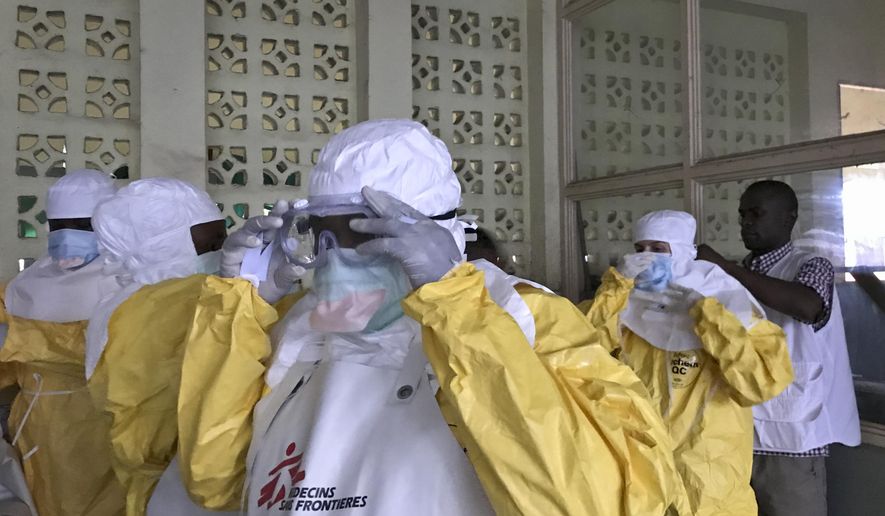The threat of Ebola spreading further across the Democratic Republic of Congo is keeping health officials on a “knife-edge” as they monitor the situation — but in a country of almost 79 million people and more than half the size of Europe, life must go on.
The country sits on one of the largest reserves of copper and precious metals and mining, along with petroleum fields, that account for 95 percent of its exports.
Foreign investment, NGOs and various international workers continue to work in the country, despite immense operating challenges from a history of bloody conflict, political instability, corruption, poverty and poor infrastructure.
To protect against Ebola, travelers — as well as locals — need to focus on preventing transmission of other common diseases or ailments, said Dr. Katie Geary, regional medical director for International S.O.S., a global medical and security risk management company.
Ebola is spread through close contact with bodily fluids of a symptomatic person. The virus causes severe bleeding, fever and organ failure. If a person dies, they are even more contagious to those around them.
In Africa, ritual burial practices where individuals have close contact with dead bodies were a major driving force behind rapid infection rates in previous outbreaks. Bodies buried in the ground can also be dug up and eaten by animals, who are then killed and eaten by humans in a vicious cycle of ongoing infection.
Practicing good and water hygiene when traveling is key, Dr. Geary said: “Know the source of your food and that it’s cooked thoroughly.”
Being healthy before you arrive in a country with a high disease threat and being aware of what can make you sick are key in preventing contamination.
“So malaria is a big risk in the Congo, and it probably is a much higher risk than you’re going to get from Ebola,” she said in an interview with The Washington Times.
World health officials have identified at least three epicenters of the latest Ebola outbreak and while infections among isolated villages present a low risk to the general population, infections in the city of Mbandaka — where large families live in congested communities with poor sanitation — can make containing the outbreak and keeping up with infected individuals much more difficult.
“You have these communities living in shanty villages, very close living proximity and living in big cultural family groups,” Dr. Geary said.
“If someone gets sick, the family will naturally look after them. From one index case, you could have potentially 5, 10, 15 family members infected. They continue harboring the disease, and then they get sick, and then they need to have other people look after them.”
Reuters reported on Wednesday that two patients with Ebola sneaked out of an isolation ward in Mbandaka with the help of family and were taken to a church. One died at home and the other died later that night after being brought back to the hospital.
As of May 21, the World Health Organization says there are 58 total cases, including 27 deaths. There are 28 confirmed cases, 21 probably and nine suspected cases.
Millions of dollars of reserve funding has been activated to address the outbreak, and a number of international health organizations are assisting the country’s health ministry in providing vaccinations and identifying and treating infected individuals.
For their clients, Dr. Gear said the risk assessment of spread of disease in the Congo is “very high.”
“They’ve also got finite resources in terms of health care and health care provisions and what you don’t want to do is to have people who are ill for different reasons utilizing those services,” she said.
“Neither do you want people traveling there who become ill for one reason then being at risk of catching Ebola because you have to go to a health care facility.”
• Laura Kelly can be reached at lkelly@washingtontimes.com.




Please read our comment policy before commenting.